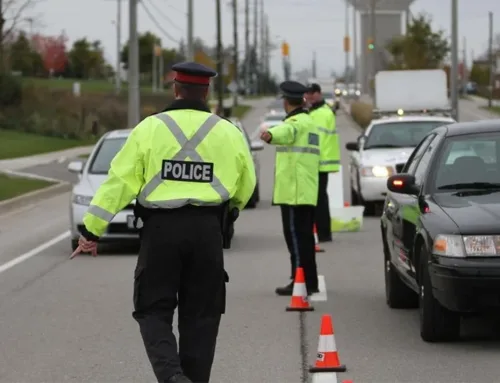The question of job security is a paramount concern for individuals holding an Ontario commercial drivers license. In Ontario, the ramifications of a traffic offence conviction for commercial motor vehicle drivers can be far-reaching and severe. This comprehensive guide delves into the details of commercial driver licenses, the penalties for various offences, and the crucial role of legal support in such situations.
What is a Commercial Drivers License?
A commercial drivers license (CDL) in Ontario is a specialized license required for individuals who operate large, heavy, or potentially hazardous vehicles for commercial purposes. The requirements and classifications for a CDL are extensive, each tailored to specific vehicle types and professional needs.
Ontario’s Class Licenses A-Z
In Ontario, driver’s licenses are categorized into different classes, each allowing the operation of different types of vehicles. The primary classes for commercial drivers are:
- Class A – Allows driving a tractor-trailer, truck and trailer combinations.
- Class B – Permits the operation of buses with a seating capacity of over 24 passengers.
- Class C – For driving vehicles designed to transport 16 or more occupants, including the driver.
- Class D – Permits operating a motor vehicle exceeding 11,000 kilograms gross weight or registered gross weight.
- Class E – For school buses with a seating capacity of 24 passengers or more.
- Class F – Allows driving vehicles such as ambulances or small buses with a seating capacity of fewer than 24 passengers.
- Class G – General vehicles, including cars, vans, and small trucks.
- Class M – For motorcycles.
It’s critical for commercial drivers to hold the appropriate class of license for the vehicle they operate to avoid legal issues and ensure safety.
Penalties for Commercial Drivers Convicted of Traffic Offences
Severity of Offense
The nature and severity of the offence significantly influence the penalties imposed. For instance, a fine for driving a commercial vehicle without a CDL can be quite severe, reflecting the risk posed by unqualified drivers on public roads.
Driving Record
A commercial driver’s past driving record plays a pivotal role in determining penalties. A history of infractions can lead to escalated penalties, including license suspension, whereas a clean record might offer some degree of leniency.
Employer Policies
Employers in the transportation sector often have strict policies regarding traffic offences. A conviction can lead to termination, especially if the offence violates company policy or poses a risk to public safety or company reputation.
Here’s a table that outlines potential consequences for various traffic offences commonly encountered by commercial drivers in Ontario. This table considers the factors of offence severity, driving record, and employer policies:
| Traffic Offense | Potential Consequences for Speeding | Potential Consequences for Careless Driving | Potential Consequences for Failing to Stop at a Red Light | Potential Consequences for Cell Phone Tickets | Potential Consequences for Stunt Driving |
| Severity of Offense | Fines, demerit points, possible license suspension for repeated or high-speed offenses | Fines, demerit points, possible criminal charges, license suspension | Fines, demerit points, possible license suspension | Fines, demerit points, possible license suspension | Severe fines, demerit points, immediate license suspension, vehicle impoundment, |
| Employer Policies | Possible employment probation or termination depending on company policy and severity of offence | Likely termination or severe disciplinary action due to the serious nature of the offense | Employment consequences depending on frequency and severity of infractions | Disciplinary actions, potential termination for breach of safety policies | Almost certain job termination due to the high-risk nature of the offense and its impact on public safety and company reputation |
This table provides a detailed overview of how different traffic offenses like speeding, careless driving, failing to stop at a red light, using a cell phone while driving, and stunt driving can affect a commercial driver in Ontario, considering the varying degrees of severity, past driving records, and specific employer policies.
Insurance Considerations
Insurance considerations play a pivotal role in the professional life of a commercial driver in Ontario. Traffic convictions, ranging from minor infractions like speeding to more severe offences such as stunt driving, can have profound implications on insurance coverage and costs. This impact is not just limited to personal insurance but extends to the insurance policies held by their employers, often resulting in broader implications for both the driver and the company.
Increased Insurance Premiums
Upon conviction of a traffic offense, a commercial driver can expect an increase in their insurance premiums. Insurance companies assess risk based on driving records; thus, any infraction can be perceived as an increase in risk, leading to higher costs. This increase is not uniform and depends on the severity and frequency of offenses. For example, a single speeding ticket might result in a moderate increase in premiums, while a conviction for stunt driving could lead to a dramatic surge in insurance costs.
Risk of Policy Cancellation
In severe cases, especially with multiple or serious offenses like reckless or careless driving, an insurance provider may deem a driver too high a risk to insure, leading to policy cancellation. This outcome is significantly detrimental for commercial drivers, as maintaining valid insurance is a legal requirement for operating commercial vehicles in Ontario. Losing insurance coverage can effectively halt a driver’s ability to work legally, thus impacting their livelihood.
A Conviction Can Cause Problems for Carriers
The repercussions of a driver’s traffic conviction extend beyond personal consequences to affect their employing carrier. Increased insurance costs, potential loss of reputation, and operational challenges are some of the issues carriers may face, often leading them to implement strict policies regarding their drivers’ conduct on the road.
Why You Need Legal Help
In the face of a traffic offence, professional legal assistance is not just a benefit; it’s a necessity. Traffic Paralegal Services, with our experience in commercial traffic tickets and comprehensive understanding of the Highway Traffic Act, are equipped to provide the necessary legal support. From appealing a traffic ticket to defending against charges of careless driving in Ontario, having legal guidance can significantly influence the outcome of your case.
In conclusion, the potential consequences of a traffic offence conviction for a commercial driver in Ontario are significant and multifaceted. They can impact not just the individual driver but also their employer and carrier operations. Engaging with a knowledgeable and experienced legal team like Traffic Paralegal Services is crucial in navigating these challenges, ensuring that your professional standing and rights are adequately protected.









Leave A Comment
You must be logged in to post a comment.